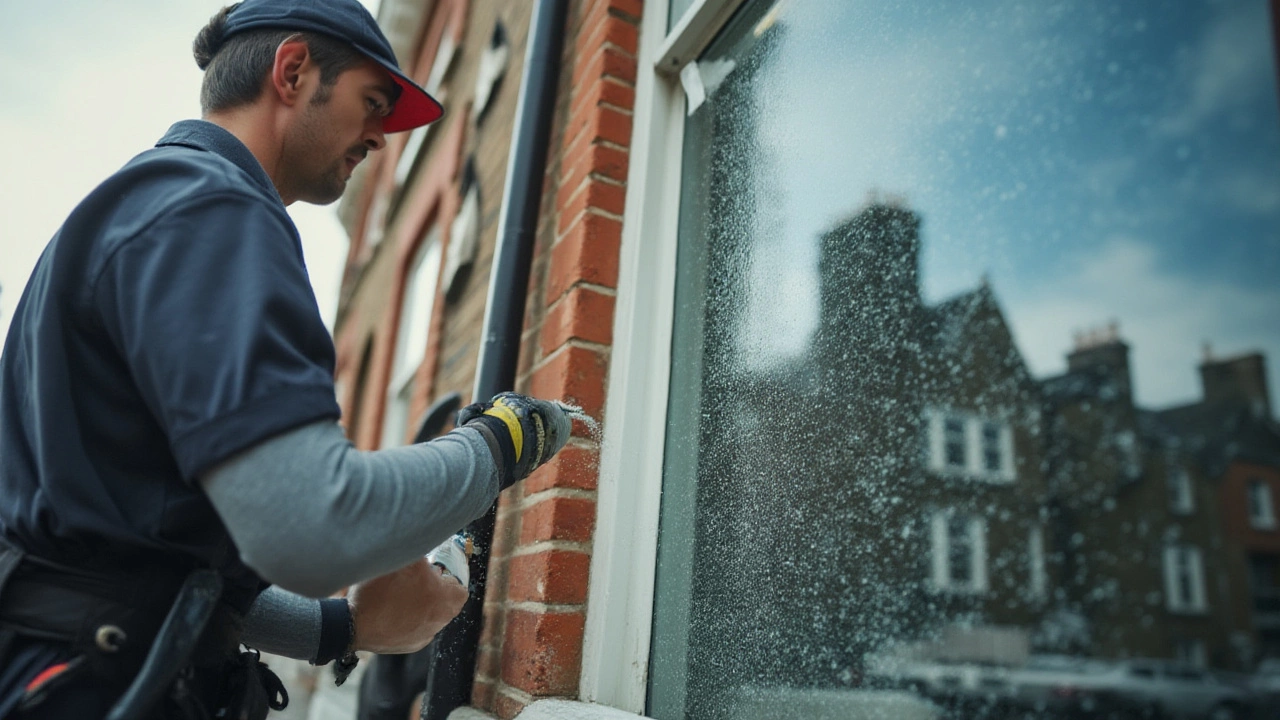Professional Window Cleaners: What They Do and Why You Might Need One
When you look out a clean pane, you rarely think about the work behind it. A professional window cleaner brings the right tools, chemicals and experience to get rid of streaks, hard water spots and stubborn grime. Whether it’s a high‑rise office or a cosy flat, they know how to reach every corner safely.
When to Call a Pro vs. DIY
If you only need a quick wipe for a couple of single‑glazed windows, a bucket, microfiber cloth and a dash of vinegar can do the trick. But once you face double‑glazed units, tough mineral deposits or hard‑to‑reach spots, the DIY route often ends in a mess. Professionals use squeegees with proper tension, water‑fed poles, and low‑foam cleaners that leave glass clear without a single streak.
One of our recent posts, “Best Way to Clean Windows: DIY vs Store‑Bought, No‑Streak Method, Pro Tips,” breaks down the exact ratios for a home mix and shows where a pro’s equipment outperforms a kitchen bottle. If you’re curious, give it a read – the difference is obvious after a side‑by‑side test.
What to Expect in Cost and Service
Pricing can feel confusing, especially when you see quotes that vary widely. In 2025 the average rate for a standard residential job in the UK sits around £2‑£3 per square metre. Larger commercial buildings might be charged per hour, usually between £30‑£45, depending on height and access difficulty.
Our guide “Best Window Cleaning Prices: How Much to Pay for Sparkling Windows in 2025” explains the factors that push the price up – like scaffolding, special glass types or after‑hours work. Knowing these triggers helps you compare quotes fairly and avoid hidden fees.
Most services include a quick visual check for cracked seals or loose frames. Spotting these early can save you from costly replacements later. Ask your cleaner if they provide a brief report; a professional should be happy to point out any issues.
Environmental concerns are also part of the conversation. Look for cleaners who use biodegradable solutions and water‑recycling systems. This not only reduces runoff but often results in a cleaner finish because harsh chemicals can leave residue that attracts dust.
Finally, timing matters. A typical house cleaning takes 30‑45 minutes, while multi‑storey blocks might need a half‑day. If you book during off‑peak seasons (late autumn or early spring) you may snag a discount and still get the same quality.
Bottom line: professional window cleaners offer speed, safety and a streak‑free shine that’s hard to match with household tools. By understanding cost drivers, checking service details and weighing DIY limits, you can decide whether to roll up your sleeves or let the experts handle the job.

What Do Professional Window Cleaners Use in Their Water? Expert Window Cleaning Solutions Explained
Want shiny, streak-free windows like the pros? Discover exactly what professional window cleaners put in their water—and why it works so well.
Read More